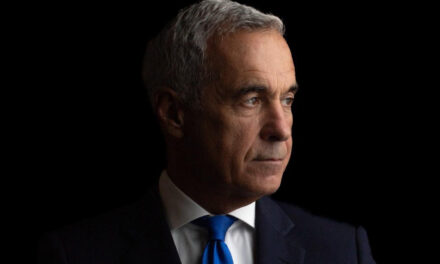The smaller parties talked about coalition compulsion after the polls closed.
The ruling Social Democratic Party (PSD) won the 10th parliamentary election held after the 1989 regime change in Romania, based on the results of surveys published after the polls closed at 9 p.m.
The PSD is followed by the ultra-nationalist Association for the Unification of Romanians (AUR), two other extreme groups were also represented, but the RMDSZ crossed the 5 percent parliamentary threshold according to the exit poll data.
The last time participation was higher than now was measured 20 years ago.
According to the exit poll data published by the CURS and ARA research institutes, the PSD was able to obtain 26 percent of the votes. (These results reflect the responses of voters on election day, immediately after leaving the polling booth, as of 7 p.m., and do not include the options of voters abroad). The non-exit poll of ISNCOP measures the PSD at 24.8 percent.
PSD is followed by the extreme nationalist, anti-Hungarian, opposition Alliance for the Unification of Romanians (AUR) with 19 percent (INSCOP measures it even higher, 21.6 percent), which doubled its 9 percent support in 2020.
The National Liberal Party (PNL), which is also in government, and the opposition Save Romania (USR) are tied for third place with 15.5 percent. INSCOP measures PNL at 14.6 and USR at 12.6 percent.
At the same time, SOS Romania, the organization of European Parliament member Diana Șoșoacă, known for its scandals, was able to gain parliamentary representation (5.5 percent at CURS, 7.2 at INSCOP).
According to the CURS exit poll data, the RMDSZ crossed the 5 percent parliamentary threshold, although according to INSCOP, the Senate list received 4.8 percent of the votes.
The recently established Young People's Party (POT), which supports the independent presidential candidate Călin Georgescu, has the same extreme views as its mentor, or the AUR. POT is given 5.5 percent by CURS and 5.2 percent by INSCOP.
The left-wing, progressive party, SENS (an acronym made up of the Romanian terms health, education, nature, sustainability) and sensitive to environmental issues and the rights of the LGBTQ community, is also measured not far below the 5 percent entry threshold.
However, the data from these polls should be treated with extreme caution.
It is worth remembering that the exit poll results published on the evening of the first round of the presidential election held a week ago still ranked Călin Georgescu in third place, and then, according to the official data, the independent candidate finished in first place with 22.94 percent. On the evening of November 24, the polls declared Social Democratic Prime Minister Marcel Ciolacu as the winner, but the PSD president finished in third place (19.14 percent) following the vote count and did not even make it to the final round.
According to sociologists, there is a high chance that the surveys will "overreach" in the same way in the case of the parliamentary elections. Namely because the number of voters who were not willing to reveal which party they voted for is quite high.
The social democrats see the results of Sunday's Romanian elections as indicative, the liberals are open to a coalition government - it is clear from the first statements of the PSD and PNL leaders after the polls closed.
Prime Minister Marcel Ciolacu, the outgoing president of the currently ruling Social Democratic Party (PSD), emphasized: the voters confirmed that the PSD is still the strongest party in Romania.
"The Romanian voters sent an important signal to the political class. Basically, to continue the development of the country with EU funds, and at the same time protect our identity, our national values and our faith," said Marcel Ciolacu.
George Simion, the president of the Association for the Unification of Romanians (AUR), evaluated the exit poll results of the election as a revolt of the voters against injustices.
"Today, the Romanians took their fate into their own hands, they rebelled against the injustices of the past years. (…) Our traditional values spoke, the Romanian people largely voted for the sovereignist forces," G4media quotes George Simion.
According to Ilie Bolojan, interim president of the National Liberal Party (PNL), which has been governing with the PSD until now, the parliament will be divided, with many parties, so a coalition will be needed.
"The PSD is willing to participate in such a coalition, (...) and the basis for negotiations will be the reform program that we undertook," Agerpres quotes the former mayor of Nagyvárad, Ilie Bolojan.
Krónika.ro
MTI
Cover photo: Marcel Ciolacu, outgoing president of the currently governing Social Democratic Party (PSD)
Source: Facebook/Marcel Ciolacu













